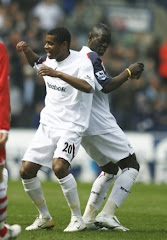What is "healthy eating?"
- Aiming for regular meals (usually 3 meals per day in the morning, afternoon, and evening) and healthy snacks (when you are hungry or need extra energy.)
- Eating foods from all of the food groups (grains, fruits, vegetables, proteins, dairy, and healthy fats) each day to meet your nutritional needs.
- Balancing nutrient-rich foods with moderate amounts of other foods, such as sweets or fast foods.
- Eating when hungry and stopping when full.
Tips for Healthy Eating
Aim for 3 meals a day. (Don't skip breakfast to get out the door faster.)
Try to avoid prepackaged and processed foods as they are often higher in saturated and trans fat levels.
Don’t eat too fast as it takes at least 20 minutes for your mind to register that you are full.
Watch your fat intake instead of your calorie intake.
Aim to eat fish twice a week, as it is often a healthy source of protein.
Limit sugar intake.
Eat organic food when possible.
Drink milk instead of soda in order to get more calcium and less sugar.
Listen to what your parents have to say about eating healthy because they only want what is best for you.
Avoid “dieting.” Fad diets often do more harm than good, as they sometimes limit the intake of nutrients that your body needs.
Replace chocolate bars with hot chocolate, ice cream with frozen yogurt or sorbet, and regular chips with baked tortilla chips or pretzels.
Source: http://kidshealth.org/teen/food_fitness/nutrition/healthy_snacks.html#
--Posted by Malia S.
People need calories, because they need to fuel both their sports performance and their growth, and depending on how active they are, they may need from 2,000-5,000 total calories per day. If athletes don’t have enough calories in their bodies, they won’t be able to maintain their performance because energy level will be depleted faster. Carbohydrates are also needed, and are found in fruits, vegetables, and grains. Another important factor in a teen athlete’s diet is calcium. Calcium helps build strong bones, which athletes need and, you can find calcium in dairy such as low-fat milk, yogurt and cheese. Other important factors are iron, which you need, and you can get from lean red meats, green leafy vegetables, and iron fortified cereals. You also need protein which you can find in fish, lean meats and poultry, eggs, dairy, etc. and fat, but not too much of it.
(http://kidshealth.org/teen/food_fitness/sports/eatnrun.html#)
--Posted by Isabella G.

thats true, fish is good for you, some have essential omega 3 oils that are very healthy
ReplyDeleteI like this very detailed and shows you know what your talking about. Just try to make the font match... it gets small and different in the middle.
ReplyDeleteI like you tips, but you have two different fonts in the blog, so you might want to change that!
ReplyDeleteI really like this section and now you helped our group get ideas for section similar to this!
ReplyDelete